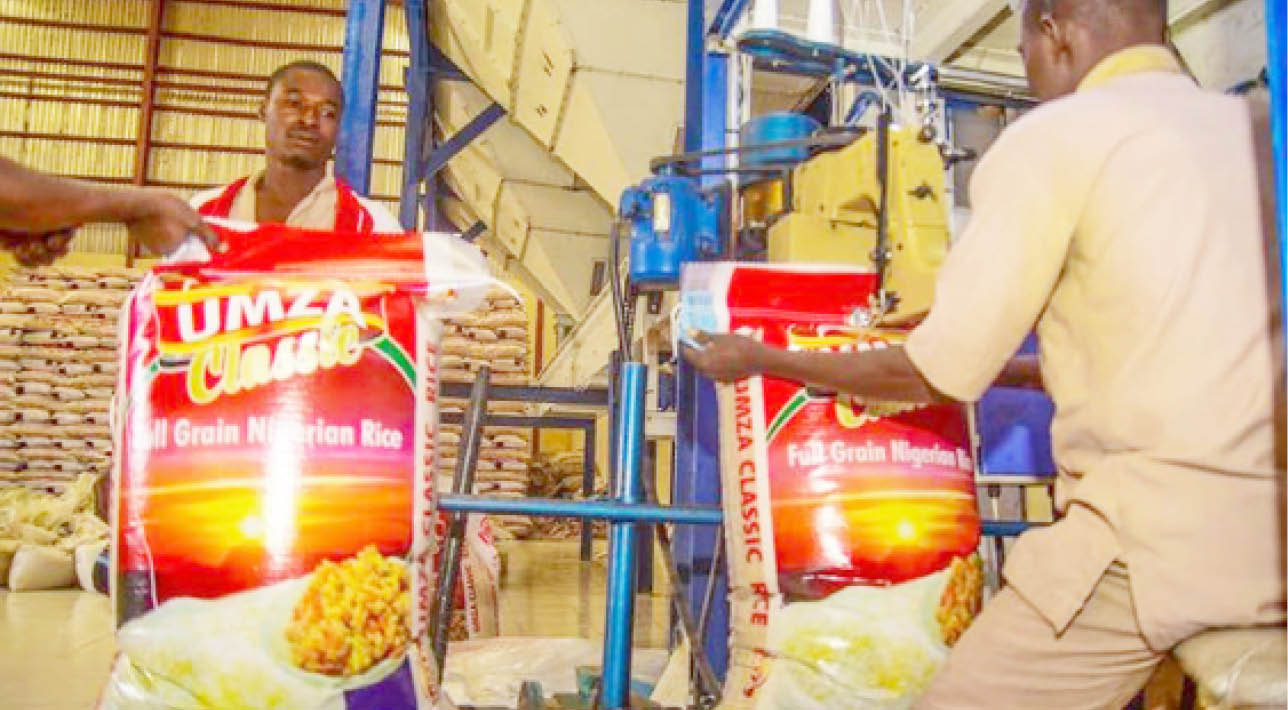Despite issues related to electricity supply and tariff, multiple taxes as well as the aftermath of COVID-19 pandemic on the nation’s business outlets, many businesses in Kano State have managed to remain afloat.
During the COVID-19 lockdown, though markets and other social gathering venues were closed down, super markets and malls in the state were allowed to operate skeletal services, thus helping them to survive the pandemic as well as scale other financial huddles. Malls like Grand Square, Jiffatu, Sahad, Sufi Mart, among others thrived and have maintained the tempo all through.
Similarly, rice milling business is also one of the few businesses that has remained afloat in the state, as demand for processed rice and the ban on importation of rice through the land borders created a huge demand for the commodity.
Mega rice mills like Umza Rice Mill, Popular Rice Mill, Al-hamsad Rice mill, among other medium scale rice mill clusters in Kura, Bunkure and Gezawa were operating continuously, despite all odds.

According to the Personnel Manager Al-Hamsad Rice Mill, Engineer Usman Ibrahim, the factory had managed to continue with its production throughout the pandemic period and the company never laid off any of its staff due to the pandemic.
Alhaji Umar Bello Gofaru, a rice miller at Gezawa rice mill cluster, said demand for the commodity was what sustained the business despite high cost of production. “The sector is still thriving due to the huge demand for rice; and we were able to survive the pandemic as well as high cost of production with reasonable return on investment,” he said.
It was also gathered that plastic companies in the state were able to withstand the economic huddles that negatively affected various businesses.
According to a medium scale plastic company operator, Malam Hamza, the plastic companies were able to thrive through the financial crisis because of an alternative form of raw material sourcing. According to him, most plastic companies now depend on recycling approaches in their raw material sourcing.
Another thriving sector is sachet water production. Many of such companies are doing well, especially during the hot season and beyond.
According to the manager of Lucky Ice Table Water and General Enterprises, Alhaji Muhammad Yusuf, high demand amidst other operational advantages encouraged the sector despite other odds.
The bakery sector has also flourished despite the odds affecting other businesses. It was revealed that both mega and medium bakeries have been thriving before, during and after the pandemic in the state. It was also gathered that despite the high cost of production, bakeries have maintained a steady supply of their product with slight price increase on the products.
According to the Manager of HSB bread, Alhaji Dahiru Baballe, the bakery has a direct workforce of 26 people and over 60 indirect workers which he said none was relieved of their job throughout the pandemic period.
“There was a huge increase in demand for bread during the period though production cost increased, we did not lay off any of our staff. What we did was to introduce a slight increase in our product price to cover the increase in production cost,” he said.
Officials of the branches of Sahad, Grand Square and Jiffatu visited had separately referred our correspondent to their association for comments.
When contacted, the Executive Secretary, Supermarket Owners’ Association, Kano State chapter, Alhaji Umar Habu Ibrahim, said though some members have closed down their malls due to financial challenges, many have been operating especially those with supporting capital.
Daily Trust also reports that more business firms, particularly Fast Moving Consumer Goods (FMCG) are opening shops in Kano.
Last week, Eat ‘n Go Limited, the master franchise of Domino’s Pizzas, Coldstone creamery and Pinkberry in Nigeria opened an outlet in Kano valued at about N800m.

 Join Daily Trust WhatsApp Community For Quick Access To News and Happenings Around You.
Join Daily Trust WhatsApp Community For Quick Access To News and Happenings Around You.


